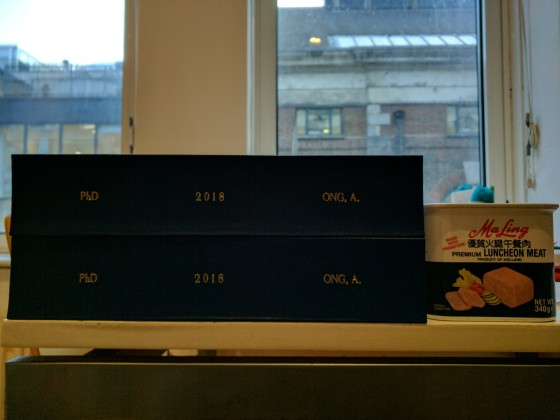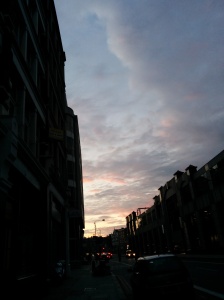
14 August 2018: Confirmation of Award – Doctorate of Philosophy.
3 August 2018: Submitted the final thesis.
9 April 2018: Passed the Viva with minor corrections.
12 January 2018: Submitted the thesis.
Compassionate Mobilities: Towards A Theory For Negotiated Living
Compassionate mobilities works towards a theory for negotiated living inspired by urban practices like parkour, art du déplacement, breakin’ and graffiti. It explores compassionate ways of being together, in a shared place. The need for compassionate mobilities might be seen most clearly in the hypercompetitive pursuit of upward income mobility through education in Singapore. Fear is the main political affect that drives this hypercompetitiveness. A deep sense of loss hinders the imagination of a more hopeful and compassionate narrative of future Singapore. Compassionate mobilities is an emerging theory that proposes how we might live together, in a place shaped by fear and loss, negotiating different hopes for this shared place. Compassionate mobilities works towards tempering these hopes (an imagination of the future that compels interventions in the present) with compassion and proposes an imagination of the future as multispatialities (a term I use to describe a way of imagining the future as multiple places, holding multiple narratives, coexisting in the same location).
Observations of parkour, art du déplacement, breakin’ and graffiti offered some initial ideas towards compassionate mobilities. Over 25 workshops in London and Singapore, these urban art-inspired place practices formed the basis of a theory of compassionate mobilities. These workshops were undertaken with young people between the ages of 15 and 25, mostly in school settings. Part I will focus on establishing the theoretical and contextual basis for compassionate mobilities. Part II will offer some ideas for the negotiation of place using urban art-inspired place practices to initiate compassionate relationships and alternative imaginations of the city that are not constrained by fear and loss.
—-1 February 2015—
A Poem (instead of an abstract): Compassionate Mobilities
This is a ‘conventional’ thesis.
Put your hands on the table.
Rest your cheek on one hand.
Pay attention to texture and temperature.
Where hand meets table
and cheek meets hand.
This is a ‘conventional’ thesis
that asks
how parkour, skateboarding, graffiti and ‘breaking’ (also known as ‘breakdancing’)
might open up
opportunities and possibilities
for young people in Singapore.
These urban placemaking performances
are (I suggest) active metaphors
opening up new narratives
composing alternative pathways
within Singapore’s highly-ordered landscape.
This thesis will focus on young people in Singapore
between 14 and 20 years of age.
Black cold fences with slippery rails.
One step in front of the other.
Social geographer Doreen Massey defines ‘space’,
as ‘a simultaneity of stories-so-far [and]
places are collections of those stories’
(Massey 2005: 130).
Light green leaves on dark brown branches
tickle your face.
Do not be tempted to rely on them for support.
But what can urban placemaking performances do for those who struggle with getting out of bed and accomplishing everyday tasks, you might ask?
Trust your feet.
Individuals immerse themselves in ‘place’
physically, imaginatively, or both.
Crawling backwards
to that time when we were…
‘Place’ is more than what is experienced right now.
Bitter cold
black hands like tarred walkways.
This ‘conventional’ thesis
will playfully
interrogate some old stories,
disrupting/interrupting/retelling,
as it instigates experimental, exploratory
rewriting of stories
by young people for Singapore
through collaboratively facilitated applied performance workshops
with skateboarders, parkour practitioners, graffiti artists, and dancers
in London and Singapore.
In composing activistic placemaking performances
a theory of compassionate mobility emerges,
offering an alternative to ‘social mobility’
which has far to go in terms of imagining
what an inclusive city/society/nation might be.
Bibliography.

